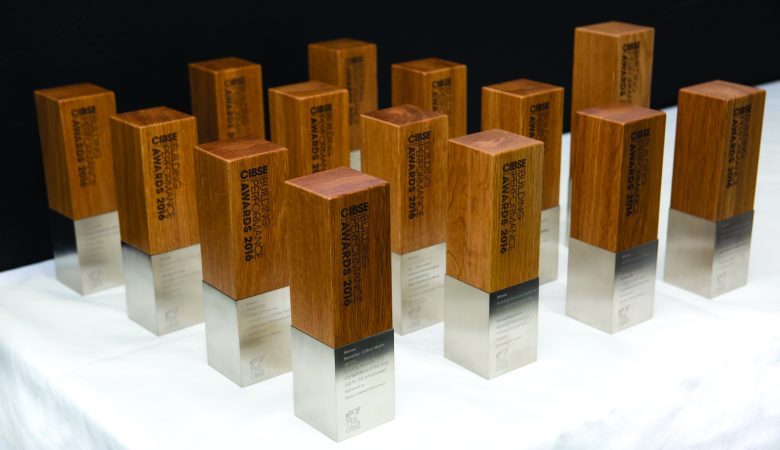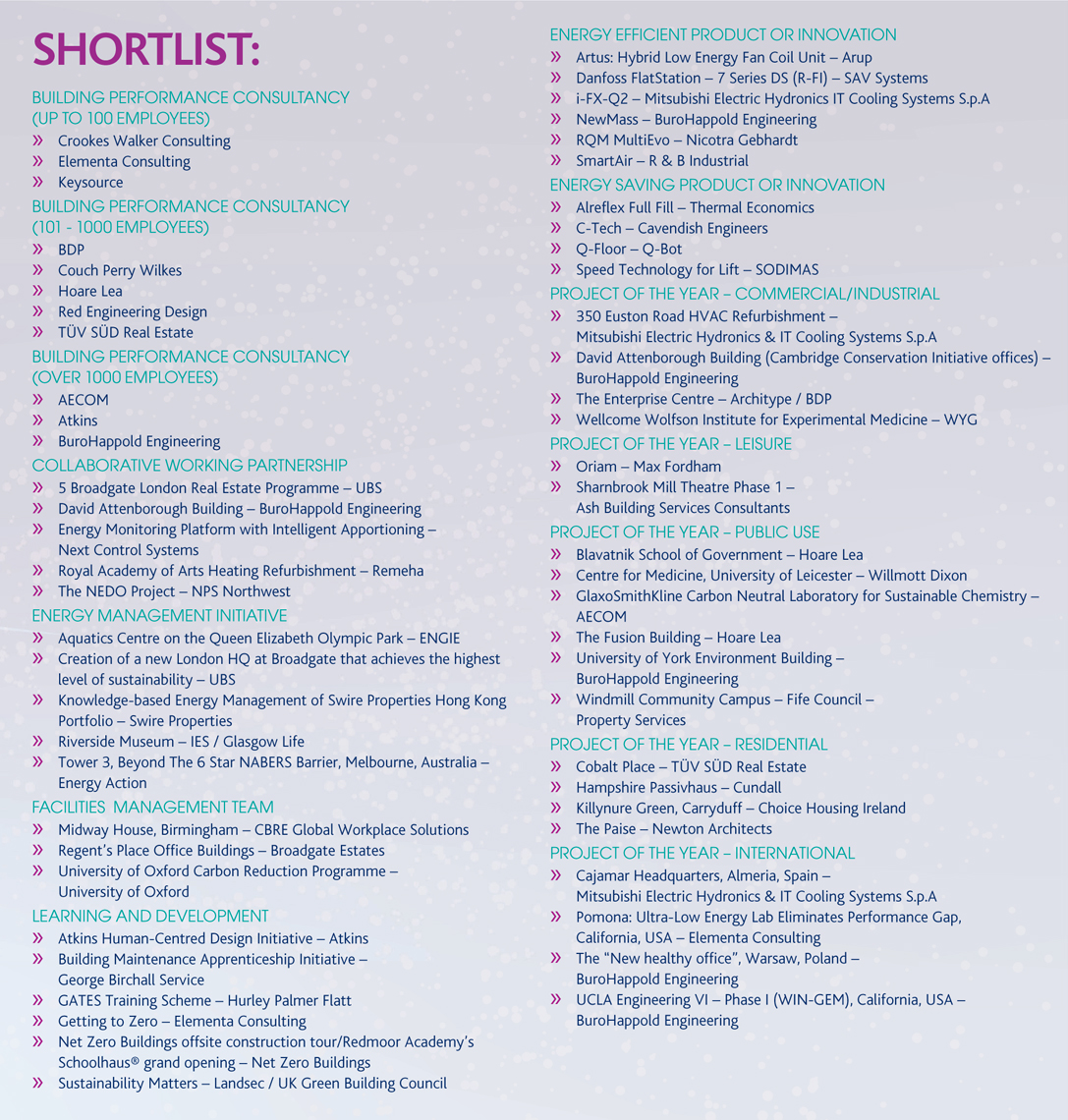
Judges for the 2018 CIBSE Building Performance Awards have shortlisted 60 of the best projects and initiatives in the industry.
This year, there are 14 categories, which have attracted entries from all sectors – from small and medium-sized enterprises (SMEs) and councils, to higher education colleges and blue chip property giants.
Higher education buildings have made a particularly strong showing in the 2018 shortlist. They feature prominently in the award for Project of the Year – Public Use, as well as in the Facilities Management Team of the Year category.
The high number of contenders reflects the current strength of the sector and the level of competition there is among universities for students.
‘The quality of higher education buildings is now really high,’ said Tamsin Tweddell, senior partner at Max Fordham. ‘There were several projects here that could have been winners in the public use category in previous years.’
Not all the nominations for shortlisting were unanimous. There were marked differences of opinion in several categories, including the Commercial/Industrial Project of the Year. Chair of judges Hywel Davies said discussions were ‘the most lively and vigorous’ he had seen in the judging process, in its 11 years.
Judges were pleased that all the entries spoke of the importance of learning from the experience of operating the building
Another hotly contested category was the Energy Management Initiative Award, with some judges questioning whether it should recognise improvements in what were poorly set up buildings. After some debate, they agreed it was important to encourage the improvement of all buildings.
‘Some of these buildings have needed an energy management initiative to put right previous wrongs,’ said Davies. ‘We need to encourage that. We don’t want to knock people for admitting buildings aren’t working.’
Mitsubishi Electric’s Donald Daw agreed. ‘The transition of buildings from poor to good is what we have to encourage,’ he said.
In the Energy Efficient Product or Innovation of the Year category, there was a good mix of new products yet to come to market, and ones that had proven benefits.
There was considerable excitement around some of the entries in this category, and the judges were encouraged to see products that were not necessarily highly engineered. ‘It’s good to see a diverse range of entrants in this category. We don’t often consider non-engineering solutions as being valid in our industry, and we should,’ said David Stevens, vice-chair CIBSE Facilities Management Group.
The Collaborative Working Partnership Award attracted entrants from a diverse range of sectors, from commercial offices and galleries, to university buildings and social housing projects. Judges remarked on how difficult it can be to bring stakeholders together on projects when they have different priorities.

The Learning and Development Award attracted a high number of excellent initiatives, which were received enthusiastically by the judges.
‘I found this the most interesting category,’ said Daw. ‘There was something I loved in all of these, which made it difficult to judge.’ The panel remarked that the strength in this category proved there was a thirst for learning in the services sector.
In the Consultancy of the Year (101-1,000 employees) category, judges were impressed by the entrants’ investment in young engineers. ‘There are a range of things that these companies are doing,’ said Davies. ‘They either have strong graduate programmes or have provision for developing their engineers.’
The category for companies with more than 1,000 employees was another closely fought group, with judges’ marks being very similar. They were pleased that all the entries spoke of the importance of learning from the experience of operating the building.
‘All of them had picked up on post-occupancy evaluations and the need to recognise when projects had gone wrong and required remedial work,’ said Davies.
The shortlisted companies were announced at last month’s Build2Perform Live event, and will now vie to win the trophies at the Building Performance Awards presentation on Tuesday 6 February 2018.
They will look to emulate the University of Bradford’s department of estate and facilities, which – last year – not only scooped the Facilities Management Team award, but was also named the overall Building Performance Champion.
We will have to wait and see whether the next winner will also come from the education sector.
CIBSE BPA 2018 judging panel
- Hywel Davies (chair), technical director, CIBSE
- Justin Bere, director, bere:architects
- Mark Bryan, associate director, TÜV SÜD
- Iain Carlile MSLL, associate, DPA Lighting Consultants London, and president elect, SLL
- Donald Daw, divisional commercial director, Mitsubishi Electric
- Julie Godefroy, head of sustainability development, CIBSE
- Renford Gordon, development manager, CIT Group
- Mark Hawker FCIBSE, senior engineering design manager, Sainsbury’s
- Debbie Hobbs MCIBSE, head of sustainability, Legal & General Property
- Susan Hone-Brookes FCIBSE, chief engineer, MTC and CIBSE board member
- Sarah Ratcliffe, programme director, Better Buildings Partnership
- David Stevens MCIBSE MSLL, vice-chair and secretary, CIBSE Facilities Management Group
- Mark Sutton Vane MSLL, director and principal, Sutton Vane Associates
- Tamsin Tweddell, senior partner, Max Fordham
- David White FCIBSE, managing director, Building Services Design

